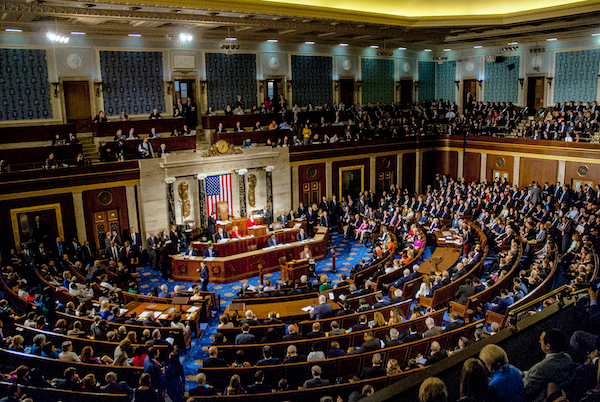Politics
REPORT: Dozens Of US Senators Receiving ‘Emergency Satellite Phones’ For Potential ‘Disruptive Event’

Dozens of senators have been provided with satellite phones for emergency communications, as revealed by those clsoe to CBS News. These gadgets form part of a range of fresh security provisions made available to senators by the Senate Sergeant at Arms, who assumed office shortly following the U.S. Capitol attack on January 6, 2021.
All 100 senators have been offered this satellite phone technology. Information received by CBS News indicates that at least half have accepted these devices, which the Senate administrative team advises senators to carry with them during their journeys.
In her testimony to the Senate Appropriations Committee last month, Senate Sergeant at Arms Karen Gibson indicated that satellite communication is being utilized “to provide a secure and backup mode of communication during a crisis situation.”
Gibson stated that these phones act as a safety net in emergency situations that “ensure a redundant and secure means of communication during a disruptive event.” across parts of the country. Federal resources will cover the cost of satellite airtime required to operate these phone devices.
An advisory from the Department of Homeland Security asserted that satellite phones serve as a means for responding to and coordinating government services in the event of a “man-made” or natural disaster leading to a communication blackout. Gibson was appointed at the time by Senate Majority Leader Chuck Schumer.
30 tons of explosive missing from a train, $290M worth of “anti radiation” medication bought by the U.S. govt and now all senators were offered a satellite phone “in case of major event taking out communication.” Sit back and relax, it’s all about to burn down… 😂😂
— Tim Kennelly (@KeystoneNewsNow) May 22, 2023
Satellite mobile phones utilize satellites to communicate with landline, cellular, or other satellite phones in most regions of the world. Responders use satellite mobile phones for emergency communications in order to coordinate response and recovery efforts in remote areas, where there are no landline or cellular telephone networks, or in areas where existing networks are damaged or overloaded during a natural disaster (e.g., severe weather or earthquake) or a man-made incident, including potential chemical, biological, radiological, nuclear, or explosive events.
Government officials argue satellite phones can help maintain command and control functions during an emergency when existing communications networks are not functioning.
The need for such measures implies an elevated level of perceived threat to senators, however, this could be indicative of a volatile political climate and increased risk of violence or other disruptive events. The use of satellite phones is usually reserved for situations where traditional communication networks fail, such as during natural disasters or severe attacks. The provision of these phones could suggest that there is an anticipated risk of such significant disruption happening, which could trigger concerns about the vulnerability of existing communication infrastructure.
The funding for these security measures emerges from taxpayer dollars. In a period when budgets are stretched thin due to pressing needs like healthcare, education, and infrastructure, the escalating costs of maintaining such heightened security should become a contentious point.

